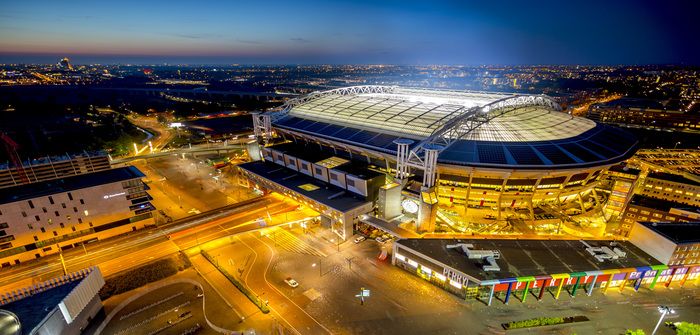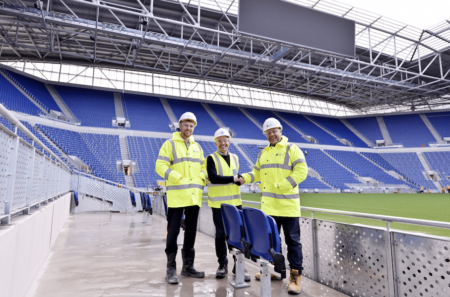In an attempt to solve the conundrum of how to have large gatherings of crowds at sporting and cultural events while the coronavirus is still active, the Johan Cruijff Arena in Amsterdam is being used to conduct research.
Testbeds have been setup in and around the home of Dutch soccer side Ajax, as part of a public-private partnership with TNO, the Rijksmuseum and theatre and musical producer Stage Entertainment.
The testbeds are testing specific solutions that could allow more and more visitors to safely visit and enjoy museums, theatres and (for the time being) small-scale events. The aim is to use existing and new technologies to speed up the go-ahead for larger events. This will help to accelerate the economic recovery in the city, also in the sports and cultural sector.
Research is also being carried out into how smart applications and technology can be combined with data to further relax restrictions within society. Mayor of Amsterdam, Femke Halsema said: “We are a densely populated city, which normally has many visitors, but are not the only busy city in the Netherlands. It is good that people are working together to see how we can help residents, businesses and visitors to stay 1.5 meters apart and have greater freedom.”
For example, the partners are seeing if new innovations can help to determine the best arrival and departure times for visitors. They are also trying to optimize walking routes so people are given smart access to locations. Other examined solutions include:
Intelligent access: accessing a location based on a time slot
Apps that offer visitors and civilians real time information about how busy areas are expected to be and how they can find alternative routes and locations
Simulations to determine the best arrival and departure times for visitors
Smart logistics, whereby walking routes are optimized in order to minimize contact between visitors
Nudging, whereby sounds, light or colors are used to guide visitors
Experiences and results will be shared with the national representatives of involved sectors. This means proven solutions can also be implemented at national level in the future. Although priority has been given to the safety of visitors and citizens, and to combating the Covid-19 virus, people’s privacy will, of course, be safeguarded in accordance with legal requirements when this technology is used.





